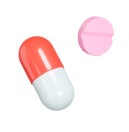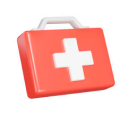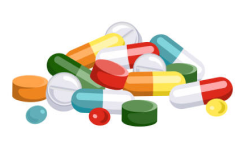Uses
What is Hepatitis A Vaccine for?
Hepatitis A vaccines help to prevent infection caused by the Hepatitis A Virus (HAV).
The virus is found in the stool of people with Hepatitis A, and is usually spread through ingestion of food and water contaminated by faeces, either through poor personal hygiene or poor sanitation. It may also be transmitted through close contact with an infected person.
Hepatitis A infection generally does not show any symptoms in young children. Older children and adults are more likely to have symptoms.
Common symptoms include fever, jaundice (yellow skin or eyes), dark urine, loss of appetite, tiredness, nausea and vomiting, severe stomach pain and diarrhea.
Who Should Receive the Hepatitis A Vaccine?
It is recommended in individuals (who are at least age 12 months old) travelling to or living in developing countries where Hepatitis A is widespread. For others who are at higher risk of contracting Hepatitis A and wish to protect themselves, consult your doctor for advice.
How should I take or use Hepatitis A Vaccine?
How Is the Hepatitis A Vaccine Given?
It is usually given by injection into a muscle.
It may be given on its own as one shot or in combination with other vaccines (e.g. Hepatitis B) as one shot.
When given on its own, two doses are usually required, one primary dose followed by a booster dose 6 to 18 months after.
When given in combination with Hepatitis B vaccine, two to three doses may be required depending on age. Consult your doctor for more details.
Precaution
What precautions should I take when taking or using Hepatitis A Vaccine?
Inform your healthcare professional if:
- You are allergic to this vaccine or any of the other ingredients of this vaccine, including neomycin antibiotic
- You are pregnant, planning to become pregnant, or breastfeeding
- You are taking any other medications
- You are currently not feeling well and having a fever
- You have a history of bleeding disorders
- You have a weak immune system due to an illness such as Human Immunodeficiency Virus (HIV) infection or cancer
- You are currently on medications which weakens your immune system (e.g. high dose steroids)
Side Effects
What are some common side effects of Hepatitis A Vaccine?
Common side effects include:
- Some people may feel faint after the vaccination
- Sit for 15 minutes to avoid fainting
- Pain, redness and swelling at the injection site
- You may place a cold compress over the affected area for relief
- You may take paracetamol for pain relief
- Headache and fever
- You may take paracetamol to treat the headache or fever
- Fatigue, general feeling of discomfort (malaise), irritability
- These side effects usually go away on its own
- Loss of appetite, stomach discomfort e.g. nausea and vomiting, diarrhea
- These side effects usually go away on its own
Please see a doctor if these side effects do not get better or become worse.
Rare but serious side effects include:
The symptoms of a drug allergy include one or more of the following:
- Swollen face/eyes/lips/tongue
- Difficulty in breathing
- Itchy skin rashes over your whole body
If you experience any of these symptoms, you should inform your healthcare professional immediately.
Handling
How should I store Hepatitis A Vaccine?
- Keep away from children
- Keep in a cool, dry place, away from direct sunlight
Disclaimers
If you take more than the recommended dose, please seek medical advice immediately. The information provided on this page does not replace information from your healthcare professional. Please consult your healthcare professional for more information.
This article is jointly developed by members of the National Medication Information workgroup. The workgroup consists of cluster partners (National Healthcare Group, National University Health System, and SingHealth), community pharmacies (Guardian, Unity, and Watsons), and the Pharmaceutical Society of Singapore. The content does not reflect drug availability and supply information in pharmacies and healthcare institutions. You are advised to check with the respective institutions for such information.
Last Updated on September 2021

Need More Medicine?
Use Medicine Order Service on HealthBuddy.

Medicines Reminder
Get reminders and chart progress on HealthBuddy.




















